‘We’ll rebuild homes, lives’: Lebanese people displaced by war vow to return home
By Hiba Morad
Thousands of families from southern Lebanon, Bekaa and southern suburbs of Beirut have in recent months been forced to abandon their homes and belongings amid Israeli bombings.
Many of them, who exclusively spoke to the Press TV website, expressed their desire and longing to return to their roots when the ceasefire is declared and the calm is restored.
Speaking from a refugee hostel in Syria, which she hopes will be the “final dwelling” in her journey of displacement along with her family, Rayhana said she cannot wait to reunite with her homeland.
“As soon as a truce is reached, my family, friends, neighbors, and I, like thousands of others, will return right away, even if we have to set up tents over the rubble or near our damaged homes,” she said.
Israel launched a ground assault and massive air raids against Lebanon in late September after a year of exchanging fire across the Lebanese border in parallel with the genocidal war against Palestinians in Gaza, causing over a million Lebanese citizens to get displaced inside and outside the country.
The extensive Israeli aggression continues against different regions across the Arab country, destroying tens of thousands of residential units, homes, shops, medical centers, and shopping malls, claiming the lives of at least 3520 people and injuring more than 15000 others.
Uncertain future but certain return
The 30-year-old woman, who worked as a translator and researcher before the current war broke out, said she and her family are anxiously waiting for the truce to head back to their home in Baalbek.
“Our journey of displacement has been so bitter, moving from one place to another, trying to seek shelter from Israeli missiles that kill civilians and destroy buildings that were “home sweet home” to thousands in an attempt to force people to turn against the resistance in Lebanon,” Rayhana said.
“There were no bombs; there were no fighters unless they mistake children, women, and men for fighters or bombs!”
Speaking to the Press TV website, her voice was emotional as she tried to vividly describe the harrowing experience she has been through in recent months, from Lebanon to Syria.
“Seeing with your own eyes how missiles hit neighboring houses that collapse in seconds, the glass windows of your house shattering due to the shockwave of the raids, your children, nieces, and nephews screaming is like a movie that keeps replaying in my head,” she explained.
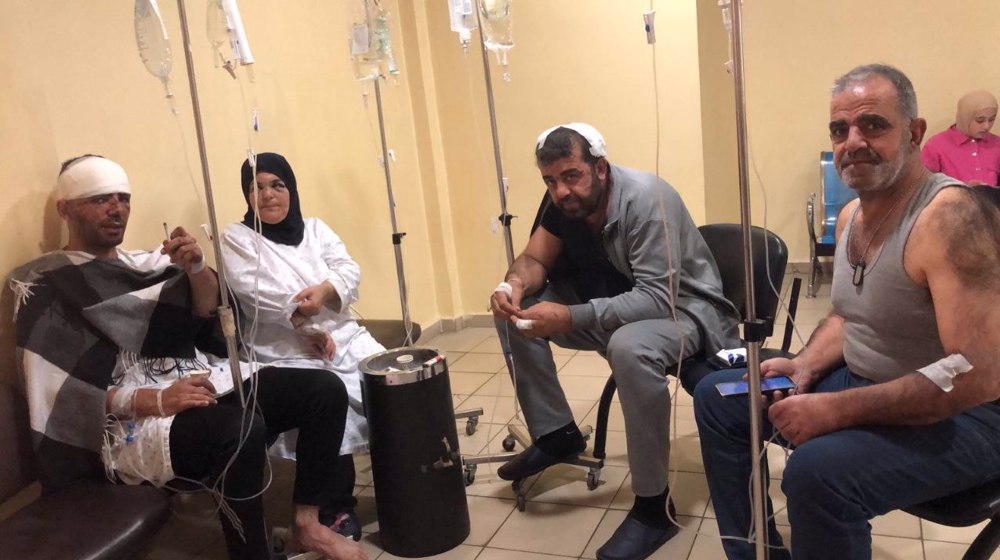
Many of the Israeli warnings of bombing certain buildings were false, cunningly hitting civilian houses or buildings and killing and injuring hundreds, especially children and women.
“We left our home to a supposedly safer place; the house of a relative living outside the threatened area in Baalbek, but then eventually had to leave again because of the indiscriminate bombings in the area,” she noted.
“I was becoming so worried that the children might suffer long-term trauma effects and instantly moved out and again to another relative’s place a bit farther.”
Rayhana told the Press TV website that leaving the place where she was raised was “not easy at all.”
Tens of thousands of people have fled Baalbek, the largest city in eastern Lebanon amid the Israeli military aggression and citywide evacuation orders since November 1.
The eastern city is believed to be an ancient Phoenician city and is home to some of the world’s best-preserved Roman ruins, and a temple that was designated a UNESCO World Heritage Site in 1984.
“Rushing out of the place with minimum luggage we had grabbed and leaving behind all the memories, the life they had established there with all its bitter and sweet moments was harsh,” she said.
“We left to an uncertain future and were eventually forced to leave the entire area and seek shelter in neighboring Syria, but we are hopeful and adherent to our land and home, and no matter how hard that will be, we will go back and rebuild the entire country.”
Promise to return
Approximately 28 kilometers southwest of Baalbek in the town of Tamnine al-Tahta, Ali, Abed, Hala, Tahani and Hussein suddenly saw themselves covered with blocks of cement and dust but did not hear anything, Hussein told the Press TV website.
“We heard nothing, we only saw a lot of dust and cement blocks and rubble everywhere and felt weak,” he said, describing the horror they have been going through.
Israel had chosen to randomly bomb their house in the wave of strikes aimed at pressuring the people and turning them against the resistance.
“We were injured, we had no bombs or weapons. We were sitting at home watching TV when Israeli warplanes decided to strike and we miraculously survived the attack but my sister was martyred,” Hussein told the Press TV website.
Asked about whether he is willing to return to his hometown, Hussein answered in the affirmative and assured that nothing will stop him from going back except for death.
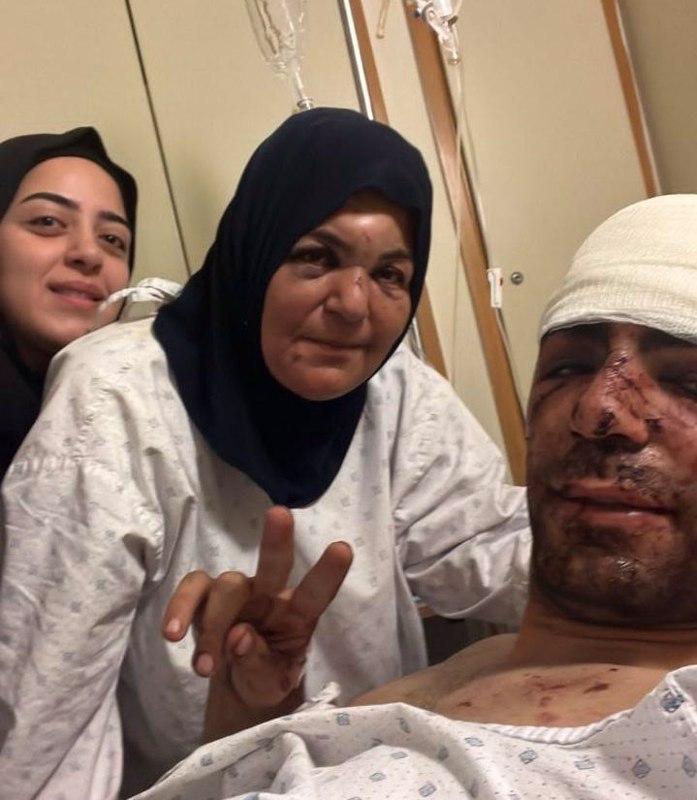
Tahani was martyred, while the rest of the family members sustained injuries.
Her sister-in-law Mirna told the Press TV website that Tahani had an unforgettable smile and was a loving and caring person. She suffered from polio since childhood and could not walk.
“She was an active and influential person, always spreading positive vibes. Everybody loved her,” Mirna said.
Mirna and her husband had just left to check up on their children who had been spending the past two weeks at their close relatives’ place outside the town when the air raid took place.
The midwife and mother of three told the Press TV website that as soon as the war ends, they will all go back and rebuild their houses.
“No one can force us to leave our land for good. We are the people and owners of this land and we have all the right to live in peace here,” she said.
More determined to rebuild
Meanwhile, a Lebanese doctor told the Press TV website that amid Israel’s ethnic cleansing and attempts to destroy Lebanon’s south, Bekaa, and Dahiyeh and turning entire neighborhoods into piles of rubble, the residents of these areas say they will return as soon as the ceasefire is declared.
Imran Riza, the UN Deputy Special Coordinator and Resident and Humanitarian Coordinator for Lebanon [UNSCOL], has warned that the picture of life in Lebanon remains grim, highlighting an "alarming" level of human suffering and significant humanitarian consequences due to the ongoing Israeli carnage.
However, according to Dr. Sara, a pediatrician in Beirut, despite all the killing, destruction, and humanitarian crises, “nothing will force the Lebanese to leave their country or homeland.”
“In 2006, our house was bombed and destroyed, in this war we also lost the house but this is not important. It hurts to lose the place that held all our memories, my children’s photo albums, the misty feelings of losing all the souvenirs we bought on our trips to Europe and the world, but not the walls and building itself. We will rebuild just like we did in 2006; we will rebuild a thousand times and will not give up our land or beliefs,” she told the Press TV website.
“If we truly feel sorry for something it is the assassination of Sayed Hassan Nasrallah. But the enemy should know that killing him only made us more determined to continue the fight and more firm in terms of returning to our homes.”
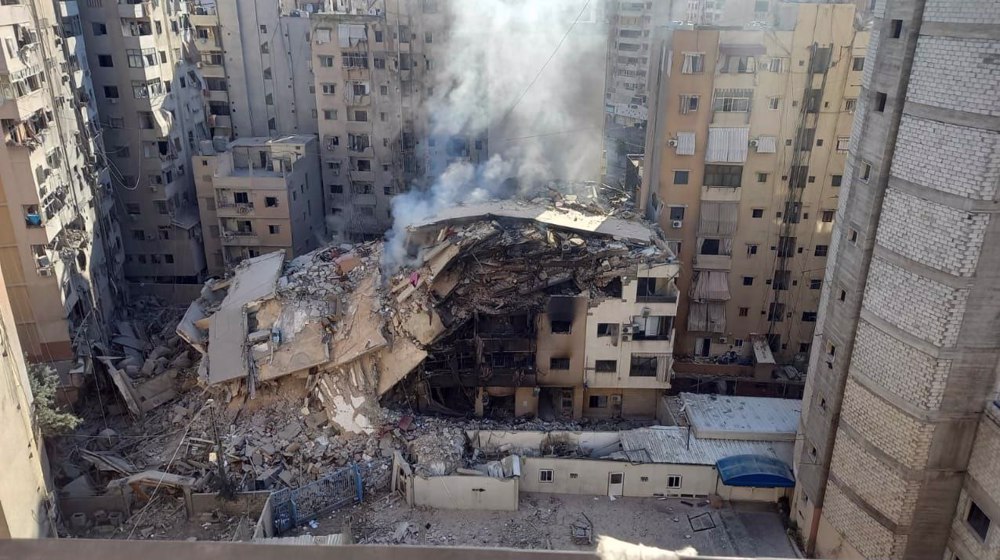
On September 27, Israel dropped tons of US-made bunker-buster bombs on Beirut's southern suburb of Dahiye, which led to the assassination of Hezbollah leader Sayyed Hassan Nasrallah and his associates.
Showing pictures of the building consisting of 44 apartments, with 44 different family stories, memories, and dreams, Dr. Sara, who has been practicing her job as a doctor, said hundreds of displaced patients with whom she met expressed the same resilience and wish to return back as soon as the war ends.
“We are all part of the resistance society and we are not sorry at all to be part of it. We are defending our land in the face of Israel, an illegal entity that has occupied Palestine and sees us next on the list of its ‘promised lands’,” she asserted.
Will bloom again
In south Lebanon, the toughest of all fronts in the Israeli extensive war on Lebanon, Fatima told the Press TV website that death was surrounding her and her family and they were miraculously able to leave after two days of constant bombardment in Bint Jbeil.
“Israel started franticly bombing the southern towns, we could hear the sound of the missiles whistling with the sound getting shriller and shriller followed by the sound of our neighbors calling for help from under the rubble,” she noted.
The university student who had recently graduated and was looking for a bright future had to flee missiles raining on the roads left and right until they reached Bint Jbeil hospital where she, her brother, uncle, and cousins were able to reach in one piece.
“My uncle had just returned from his kidney dialysis session, the bombing was getting more intense, and every time a missile whistled we thought it was our turn to ascend to the heavens. We spent an entire day and night under Israeli shelling and there was no way we could go out or try to leave. The best choice was to stay indoors in the corridor together until the shelling had minimized or stopped,” she told the Press TV website.
“On the next day, my uncle was getting tired, looking at his oximeter, which was descending to a scary level,” she said adding “That is when we decided to leave the house but upon opening the door we could not see anything but thick white dust. We had to wait again and try, eventually fleeing the area.”
Fatima said she was shocked at the sight of their neighborhood destroyed, noting that it felt “so surreal that I was unable to react or show any emotion at that moment.
The Lebanese engineer said they were among the lucky people who survived and managed to flee the area. However, despite the traumatizing experience, she wants to do is to go back to BintJbeil.
“I am not willing to give up one little grain of sand of my homeland. I will go back despite and rebuild our country hand in hand with the rest of my fellow brothers and sisters,” she said.
“Israel is mistaken to think that we will even think of leaving or giving up. We will remain as long as we are alive, and our children and grandchildren will live in the pretty houses we will rebuild, Lebanon with its people and resistance will bloom again.”
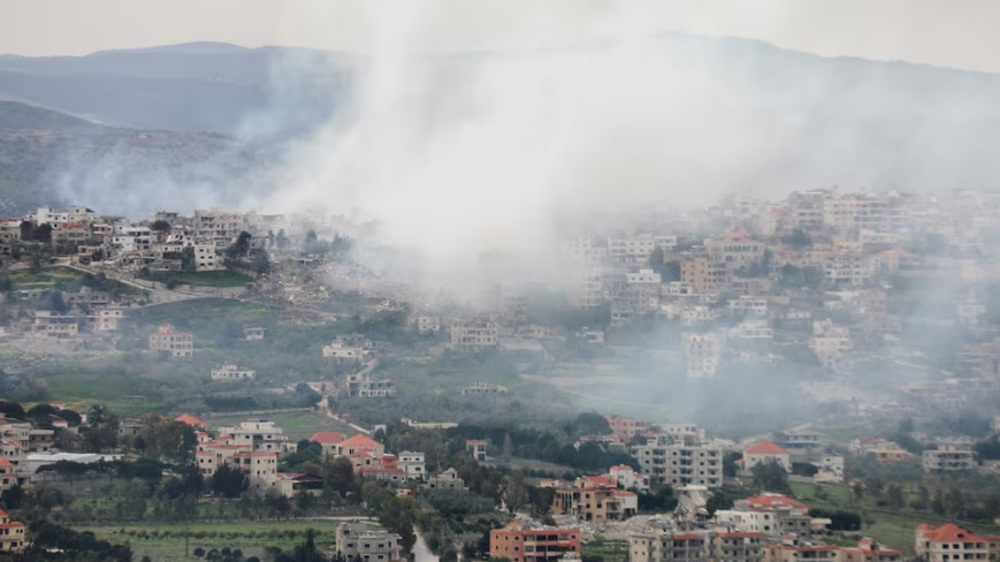
Israeli military targets two buildings in southern Lebanon in violation of ceasefire
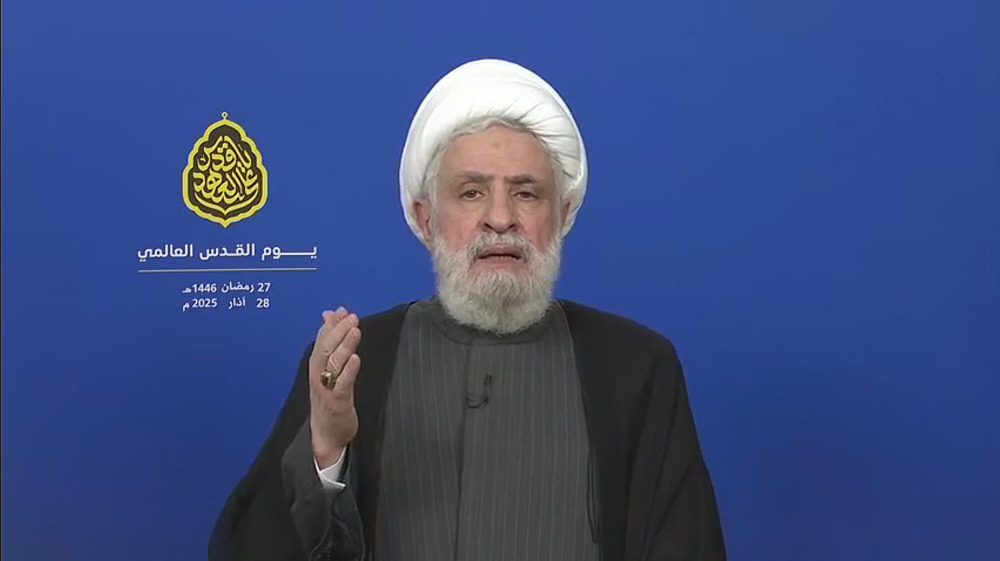
Iran a central supporter of Palestinian cause; Israel a demonic entity feeding off US: Hezbollah
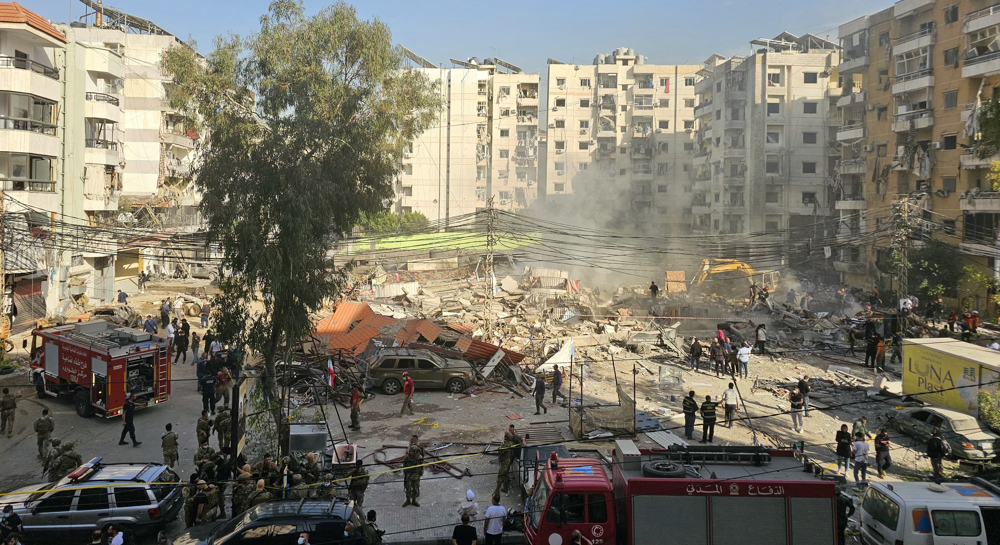
Iran censures Israel’s airstrike on Beirut
'Land of the unfree': Trump admin’s war on pro-Palestine activism on US campuses
Leader’s aide: If US strikes, Iran may have no choice but to go nuclear
VIDEO | Press TV's news headlines
Canadian Zionist Lawfare against opponents of Gaza genocide
VIDEO | Region in chaos part 2
Islamic Republic Day: Iran marks 46th anniv. of end to monarchy
Israeli MP: Gaza Strip must be 'cleansed' of Palestinians
At least four killed in new Israeli aggression on Beirut despite truce


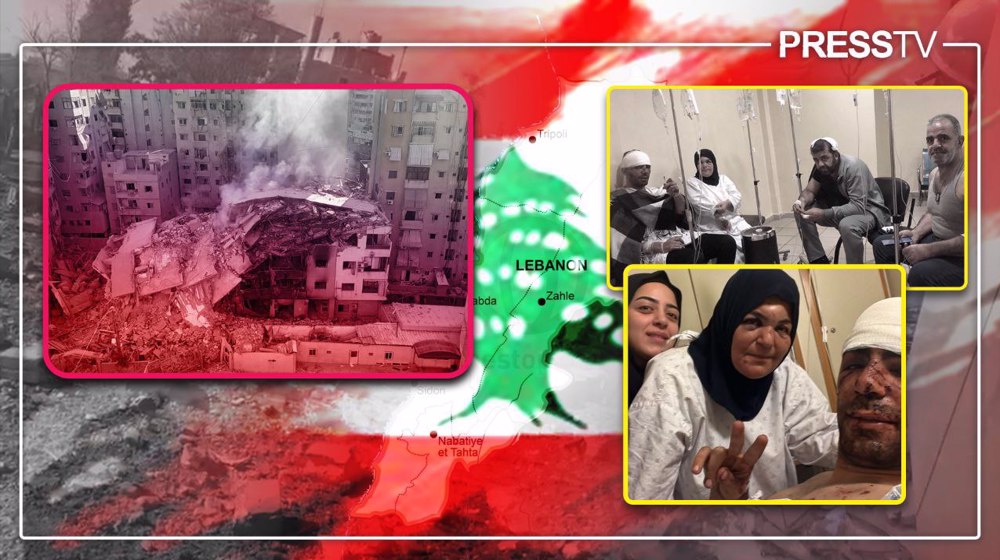



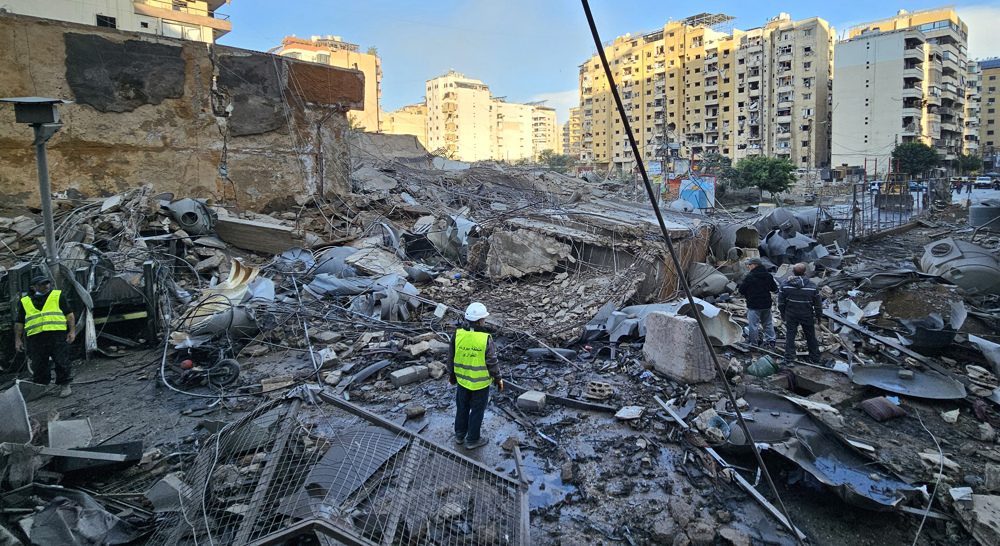

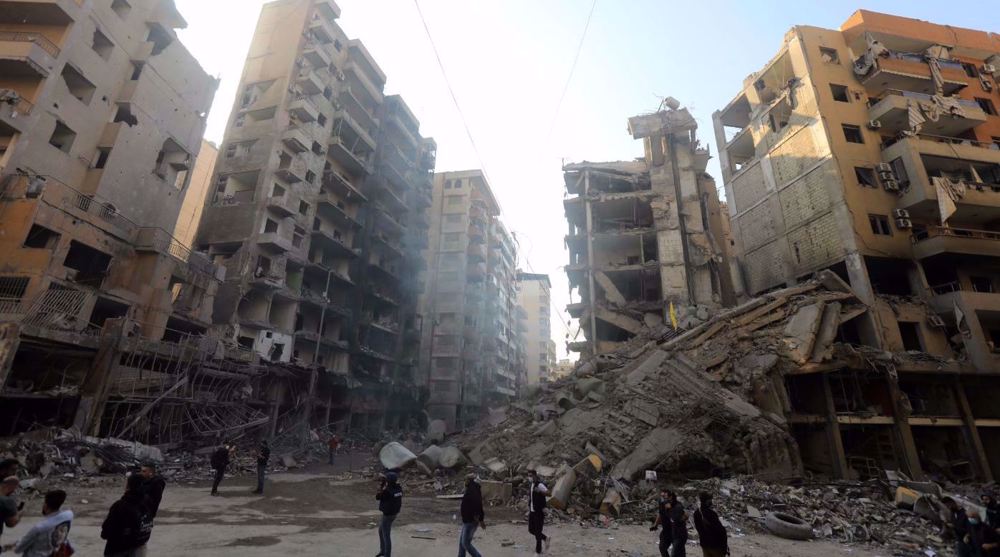
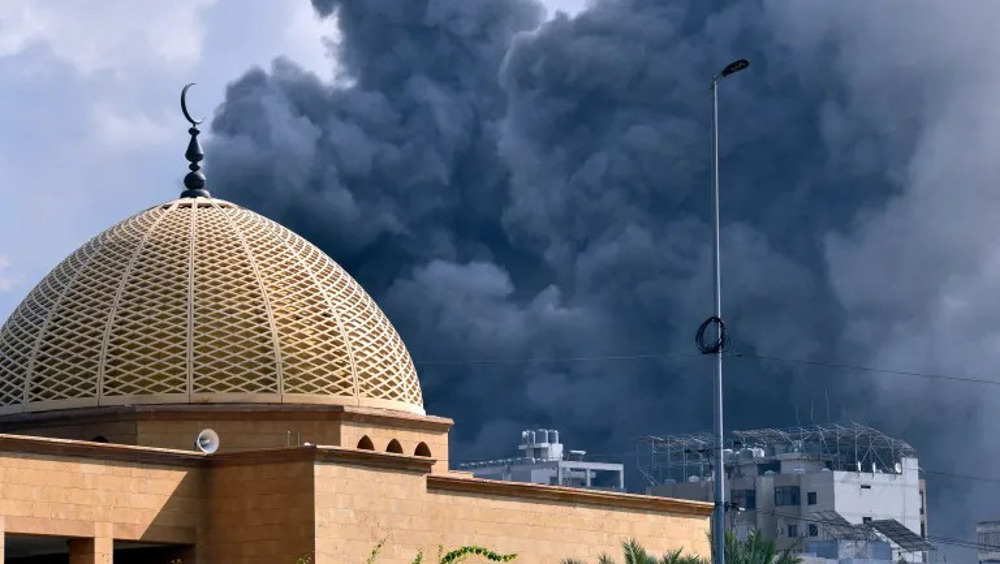
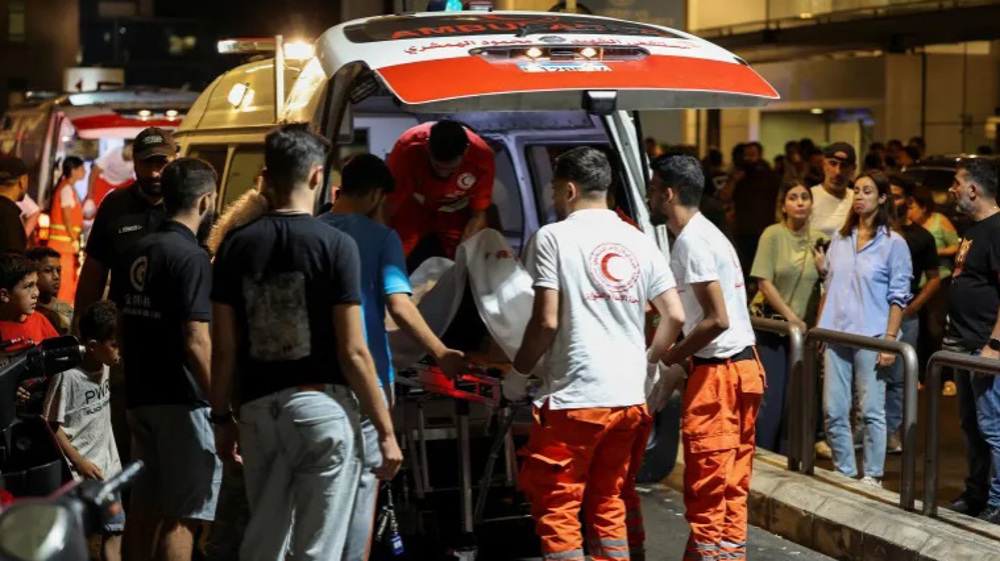

 This makes it easy to access the Press TV website
This makes it easy to access the Press TV website